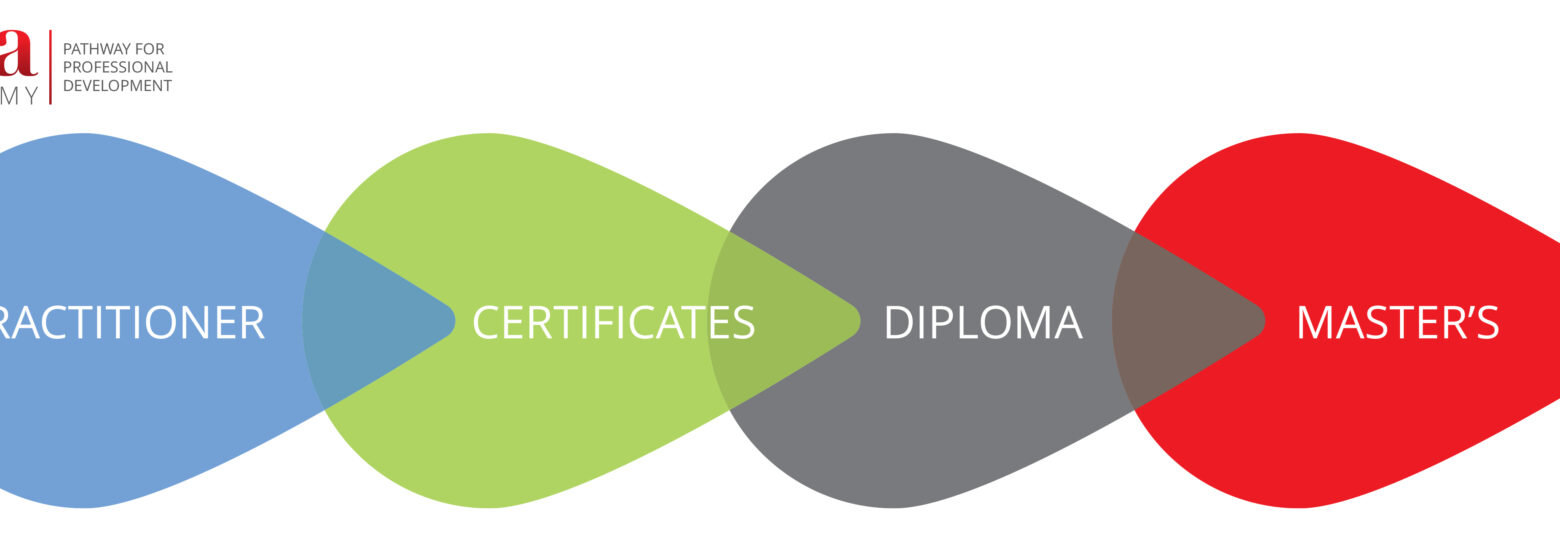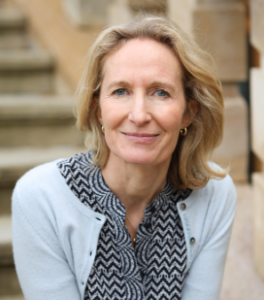We offer a self-funding route for all courses. We can arrange payment plans for manageable monthly amounts to make training accessible and affordable. To find out more, please e-mail Liz McDonald at liz.mcdonald@bsagroup.org.uk
BSA/BAISIS Certificate in Professional Practice : Supporting International Boarders
New 2025/26 course dates added!
Audience: This three day course is aimed at any member of staff that wishes to improve their academic and pastoral support for international boarders.
Study Days for this Module are:
- Study Day 1: February 27 2026
Study Day 2: March 23 2026
Study Day 3: May 7 2026
TO BEGIN YOUR QUALIFICATION IN FEBRUARY 2026 CLICK HERE
Timings: 10:00 – 15:30 GMT/BST: Check local timings here – World
Each study day is comprised of a morning and afternoon session
Our preferred platform for online training is Zoom
Key Elements of the Certificate Course Programme:
- The strategic nature and importance of the international boarding market
- Why international students seek a British education
- Cultural identity, cultural values, and cultural difference
- Induction, culture shock and integration
- Identifying and meeting the pastoral and academic needs of the international student
Format: This course will involve presentations, group discussions and case studies. You will be supported by course tutors. The course assignment is designed to help you focus on one aspect related to international boarders with a view to improving that provision/support.
Course Outcomes: Successful students will have gained knowledge and skills to allow them to add value to the way in which their school or college support their international boarding community.
What is the BSA Certificate in Professional Practice : Supporting International Boarders?
This certified course is designed specifically for staff working with international students and will provide an opportunity for these staff to develop their knowledge and skills in relation to supporting this critical, and increasing, sector of the boarding school market.
Who is the course aimed at?
This course can be undertaken by both graduate teaching and non-graduate house staff, including matrons, assistant house staff and house-parents; indeed any member of school staff with responsibility for the care and wellbeing of international boarding students.
How will this course help me to develop personally and professionally?
In successfully completing the course you will:
● be able to evaluate and have a clear appreciation of the personal and professional needs and skills involved in your boarding role;
● develop greater knowledge and understanding of the issues covered in the syllabus;
● develop, through support and guidance, the range of personal strategies you may use to resolve relevant welfare concerns for your international students;
● develop your ability to reflect critically on your work and evaluate the need for change or action;
● develop your study and planning skills and your ability to analyse reading and reference material;
● be able to communicate and defend your views and opinions orally and in writing;
How is it arranged?
This course consists of three Study Days and a linked research project. The three intensive study days involve a mixture of short lectures, presentations and discussions led by students, together with group problem solving exercises and case studies. Group discussion is a particularly important aspect of this course, enabling you to look at the theory in the light of your own practical experience. You will be encouraged to contribute ideas, opinions and questions, take responsibility for your own learning and, by sharing, to contribute to the learning of the group as a whole.
Between sessions you will be expected to do some reading, thinking and discussing with colleagues in your school and with your mentor. Before each study day, you will be expected to spend some time on the preparatory tasks in the course booklet and using the course sessions reflect on your own boarding school situation. The follow up tasks will help you to focus on practical ways of applying ideas and theories in the boarding setting.
You will also be required to keep a professional file during the course containing brief notes, ideas, action points, and activities and issues to take back to the workplace. The course booklet will give you a number of relevant tasks to think about, providing opportunities to record your thoughts. This file is itself not directly assessed but will provide essential material to draw upon when you write up your chosen assessment topic.
The Course Assignment is a written project of ~2500 words on a topic directly related to the pastoral care/management of international students. The topic will benefit both the student and their school in developing their understanding of best practice in relation to supporting international students. Guidance on selecting a suitable topic, and on how to write up and submit the assignment will be provided in the course booklet and by the tutors on the course.
Main course sessions include:
The Pastoral Care & Boarding Wellbeing of International Students
Developing strategies and practice
Integration and the whole school approach
NOTE: Students will need attend all study days and successfully complete the assignment in order to gain the course certificate.
What support will I receive during the course?
You will receive support throughout the course from the BSA, the course tutor and from your school mentor.
Course tutors
Your BSA course tutor will be a senior member of staff with considerable experience in boarding education. He or she will:
● provide personal and professional help and encouragement;
● work with you in discussion groups and tutorial sessions during the course;
● liaise with your school mentor;
● review and provide feedback on your proposed assessment task;
● advise and support you with your assignment and review progress regularly;
● mark your assignment.
Course Tutors are:
Elyse Conlon
International Director at Moreton Hall School
Elyse Conlon is International Director at Moreton Hall School, Shropshire and has worked at Moreton for 13 years in roles such as Teacher of GCSE English, Head of EAL, and Director of Studies for their renowned International Study Centre and Summer School programme.
Elyse was previously involved in admissions in a high-performing overseas school, was Deputy Chair of BAISIS (British Association for Independent Schools with International Students) for three years, and is also delighted to continue her training role with the Boarding Schools Association designing and delivering accredited courses to school staff in independent schools both overseas and in the UK.
Elyse has always been inspired by meaningful and practical international CPD with post graduate degrees in international education , applied linguistics and human resource management. She has been delivering and designing teacher training programmes for 20 years.
James Kidd
Senior Vice Principal & DSL
James is currently the Senior Vice Principal and DSL at DLD College London, having joined in September 2020, initially to look after the boarding aspect of the school – where over 50 nationalities live on site. He is responsible for the pastoral life of the school, looking after boarding, the house system, wellbeing and health care and the co-curricular life of the school. Prior to joining DLD College, James spent 14 years at St John’s School, Leatherhead, where he was Assistant Head (Boarding and Co-Curricular), having been both a Head of Department and Housemaster of the largest boys’ boarding house in the school before this. Outside of this, he is Chair of Governors at a special school in the state sector, and a team manager for the Surrey Schools’ Athletics Team. James has enrolled to study an EdD form January 2023.
Thomas Hadcroft
Headteacher
Tom Hadcroft joined Berkhamsted Boys School in January 2022 as Headteacher from DLD College London, where he was Senior Deputy Head, overseeing on the Pastoral and Boarding sides of the school for five years. During this time DLD College London were recognised with six national awards, including Boarding School of the Year and innovation awards in Mental Health, Wellbeing and Student voice. Previously, he had school leadership roles at Collège Alpin Beau Soleil in Switzerland and St John’s School Leatherhead. Before his teaching career he worked in the finance sector and has recently completed a Masters in Educational Leadership, with a focus on coaching in education.
Tom is a Council of International School Accreditation Team member and has a keen interest in international education and international boarding. He has recruited in China, Croatia, Thailand and Kazakhstan and has been a BSA Tutor on the Advanced Certificate course since 2017.
School Mentors
All participants on the course should have the support of a mentor, appointed and approved by the Head. An effective partnership between you and your mentor will have significant benefits in terms of challenge and stimulation for you both and also offers an opportunity for fresh insight into boarding issues for the school.
The role is best undertaken by a colleague who really knows and understands your work and has an experienced overview of boarding. Your mentor should support you professionally while you undertake the course, encouraging you in the process of reflection and helping you to develop your professional competence.
Key tasks for mentors are:
● allowing time for regular discussion and ensuring regular formal meetings;
● helping you to identify relevant skills and appropriate coursework tasks for your professional and personal development;
● helping you to set realistic targets for progress and to meet them;
● reviewing progress with you and providing constructive feedback;
● challenging and supporting you in reflecting on and evaluating your work.
How is the course assessed?
You will produce a reflective essay or report of approx. 2500 words, drawing on material from the professional log you have kept throughout the course. You will use a case study approach to analyse and comment on your day-to-day work as well as reflecting and evaluating your practice and your learning.
How long will I have to complete the task?
The deadline for the submission of coursework will be August 2025
Study days for this module are:
- Study Day 1: February 27 2026
- Study Day 2: March 23 2026
- Study Day 3: May 7 2026
TO BEGIN YOUR QUALIFICATION CLICK HERE
Timings: 10:00 – 15:30 GMT: Check local timings here – World
Our preferred platform for online training is Zoom
“I want to express my appreciation Supporting International Students Certificate Course. The course content was not only strategically insightful but also effective in developing my understanding of the subject matter.
The course’s structure and coverage of key themes, such as the strategic nature and importance of the international boarding market, the motivations behind international students seeking a British education, and the nuanced exploration of cultural identity, cultural values, and cultural differences, were all rich, engaging, and detailed. Working with peers to explore such topics allowed me to gain a deeper insight into the dynamics of the international education landscape and the factors influencing students’ choices.
The key areas for me, related to induction, culture shock, and integration. The course afforded time for reflection on challenges international students face when transitioning to a new academic and cultural environment, offering insights into their holistic experience.
I appreciated having a mentor, and they offered useful guidance throughout the course.
I am pleased to report that the final project I produced during the course has been useful in my educational context. We are using the work to aid discussion around our cultural appreciate day, and other similarly related events. I am confident that the education I received from this course will continue to benefit me as I continue to support international students in a boarding context.”





 Nikki Holmes : Safer Together
Nikki Holmes : Safer Together Dez Holmes : Director, Research in Practice
Dez Holmes : Director, Research in Practice Philip was a Detective having spent 30 years in the police. The last 14 years of his police service was in the Child Abuse Investigation Unit (CAIU). He is also qualified as the following:
Philip was a Detective having spent 30 years in the police. The last 14 years of his police service was in the Child Abuse Investigation Unit (CAIU). He is also qualified as the following: Maria Putz : Interim Head of Training (Sexual Violence and Safeguarding)
Maria Putz : Interim Head of Training (Sexual Violence and Safeguarding) Karl Hopwood : E-Safety Expert
Karl Hopwood : E-Safety Expert Marcus Erooga : Independent Safeguarding Consultant
Marcus Erooga : Independent Safeguarding Consultant 2019 he also assumed responsibility for the BSA’s training programme, including both day seminars and accredited training courses. Dale leads on all safeguarding and inspection matters for the BSA, including managing the Commitment to Care Charter, the annual Safeguarding Conference, the Safeguarding Forum. He has also developed a process of BSA Accreditation for our overseas members. For 31 years Dale was a boarding practitioner. After boarding positions at Norwich School and Tettenhall College, Dale became a Housemaster at Old Swinford Hospital in 1992, and was promoted to Deputy Head in 2007, and subsequently also DSL. He has also been a multi-agency trainer for the Dudley Safeguarding Children’s Board and has been closely involved in inspection in state and independent boarding since 2002. Dale had previously been a BSA course tutor since 1998 and developed the BSA Self-Assessment Toolkit.
2019 he also assumed responsibility for the BSA’s training programme, including both day seminars and accredited training courses. Dale leads on all safeguarding and inspection matters for the BSA, including managing the Commitment to Care Charter, the annual Safeguarding Conference, the Safeguarding Forum. He has also developed a process of BSA Accreditation for our overseas members. For 31 years Dale was a boarding practitioner. After boarding positions at Norwich School and Tettenhall College, Dale became a Housemaster at Old Swinford Hospital in 1992, and was promoted to Deputy Head in 2007, and subsequently also DSL. He has also been a multi-agency trainer for the Dudley Safeguarding Children’s Board and has been closely involved in inspection in state and independent boarding since 2002. Dale had previously been a BSA course tutor since 1998 and developed the BSA Self-Assessment Toolkit. Dr Tara Porter, Clinical Psychologist and Writer.
Dr Tara Porter, Clinical Psychologist and Writer.  Alicia Drummond, Founder of The Wellbeing Hub
Alicia Drummond, Founder of The Wellbeing Hub Dr Jody Walshe, HCPC Registered Educational and Child Psychologist and Author
Dr Jody Walshe, HCPC Registered Educational and Child Psychologist and Author Kate Boyd-Williams, Founder of Eduvie and an accredited Education and Wellbeing Coach
Kate Boyd-Williams, Founder of Eduvie and an accredited Education and Wellbeing Coach Sinead O’Grady, Lead Nurse, Harrow School
Sinead O’Grady, Lead Nurse, Harrow School Robin Fletcher, Chief Executive, BSA
Robin Fletcher, Chief Executive, BSA Kate Hollyer, Legal and Public Affairs Director, BSA
Kate Hollyer, Legal and Public Affairs Director, BSA
 Angela Cox
Angela Cox Speaker: Temi Akindele Barker, Founder, Inclusion Labs
Speaker: Temi Akindele Barker, Founder, Inclusion Labs Speaker: Gemma Woodhouse, Partner, Penningtons Manches Cooper LLP
Speaker: Gemma Woodhouse, Partner, Penningtons Manches Cooper LLP Speaker: Yasmina Kone, Hemisphere Education
Speaker: Yasmina Kone, Hemisphere Education Speaker: Sadia Hussain-Savuk, DEI Lead, Fettes College, Edinburgh and Independent EDI educational consultant
Speaker: Sadia Hussain-Savuk, DEI Lead, Fettes College, Edinburgh and Independent EDI educational consultant







